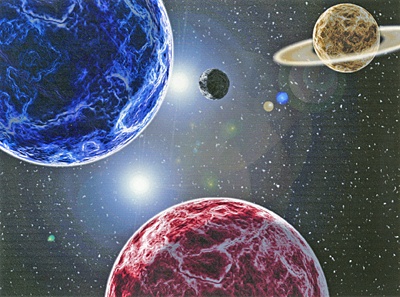All Nonfiction
- Bullying
- Books
- Academic
- Author Interviews
- Celebrity interviews
- College Articles
- College Essays
- Educator of the Year
- Heroes
- Interviews
- Memoir
- Personal Experience
- Sports
- Travel & Culture
All Opinions
- Bullying
- Current Events / Politics
- Discrimination
- Drugs / Alcohol / Smoking
- Entertainment / Celebrities
- Environment
- Love / Relationships
- Movies / Music / TV
- Pop Culture / Trends
- School / College
- Social Issues / Civics
- Spirituality / Religion
- Sports / Hobbies
All Hot Topics
- Bullying
- Community Service
- Environment
- Health
- Letters to the Editor
- Pride & Prejudice
- What Matters
- Back
Summer Guide
- Program Links
- Program Reviews
- Back
College Guide
- College Links
- College Reviews
- College Essays
- College Articles
- Back
Nuclear Power (pro)
What might be the advantages and disadvantages of nuclear power? This is a question that is prompted by many people that wish to know more about the subject. To me nuclear power is a great Natural resource that, at the rate the world is using it, seems inexhaustible. The country of France takes 79% of its power from nuclear plants scattered across the nation. The benefits of this form of power are quite obvious; however there are some controversial things about it.
A good question that one might ask is to where the spent fuel rods go. One must realize that fuel rods are extremely valuable and an establishment such as the nuclear power industry doesn’t just throw away the rods at the end of their “life”. There is a process by which the rods can me enriched again with fissile U235 and the process of it giving power starts again. Here’s how it works: 1. The rods reach the end of their power life. 2. The rods spend several years in an enormous tank of water to cool down. 3. They are enriched with U235 (bringing a concentration of 3-4% of U235 and the rest being naturally-stable U238) this is a very low amount of Uranium 235 compared to weapons grade uranium (enriched with ?90% U235) so the cost is very low.
Aside from that, using uranium in nuclear fission reactors releases no carbon emissions (for the environmental nuts). Not to mention that form of power holds ?20MeV per fission reaction (per atom). That is an immense amount of energy from something that is so easy to get just by mining uranium rich ore. Think about crude oil and natural gas, sure they’re abundant but however they are (to environmentalists) extremely harmful and (to environmentalists) promote to a silly thing that they call global warming. This isn’t a problem to me, but the problem is the conflict that arises from oil and how is a non-renewable resource (other than waiting millions of years for oil to form again).
Now on the subject of where exactly the spent fuel rods go, if the fuel rod cannot be enriched any further then it will be either put down hundreds of meters underground or it will be encapsulated in a lead case, which doesn’t make sense to me because the alpha particle (the fission product that makes up most of the mass of uranium that is lost to fission, which consists of a helium 4 nucleus) can be blocked with something the density of a piece of paper and the beta radiation (consisting of electrons, almost harmless due to the uranium’s low output of beta particles) can be stopped with something the thickness of a piece of foil. These forms of radiation are not likely to penetrate the skin. However beta radiation (consisting of extremely high frequency electromagnetic radiation) will penetrate the skin and damage DNA: however, a study shows that cells can repair DNA very well especially in higher doses. To me, there is really no problem with getting rid of spent fuel rods, which have much lower nuclear activity than enriched reactor-grade uranium.
Nuclear fission isn’t the only form of nuclear power; there is also a form of nuclear power in development called fusion power, (which involves combining the nuclei of Deuterium and Tritium H-2 & H-3 to Make Helium-4 and an unbound neutron). This type of power involves the use of a Tokamak (which is a magnetically controlled torus of plasma) to place the atomic nuclei at a high enough energy level to have them overcome the repulsive electromagnetic force and join together with the attractive strong nuclear force.
The benefit of fusion power is that is releases an extreme magnitude of power and, under
the right circumstances, is self sustained. The only by product is unbound neutrons which are
easily stopped by relatively doe-density materials. Also is causes no harm to operators, has no radioactive waste, has no carbon emissions and has cheap fuel. The most abundant source of the fusion fuel, tritium, is on the moon. I see much controversy because the moon doesn’t really belong to anyone and the future of power is there. So, like with most things, conflict is inevitable.
It is quite clear that the good things about nuclear power out weigh the bad things, which it is quite lacking of. So nuclear power is here and it is here to stay.

Similar Articles
JOIN THE DISCUSSION
This article has 0 comments.
